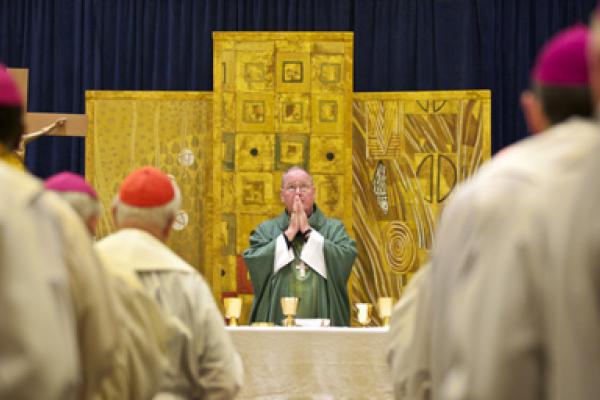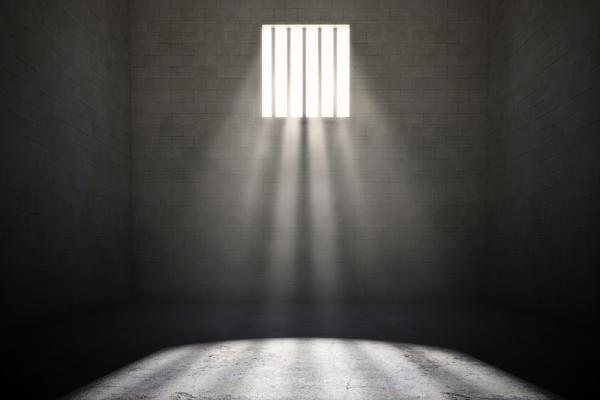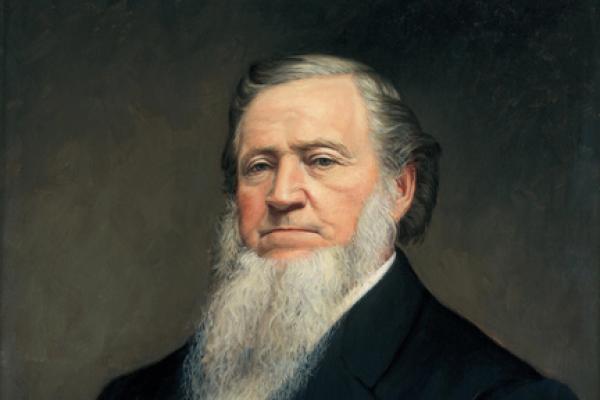When New York Cardinal Timothy Dolan told national news programs on Easter Sunday that Catholic leaders need to do a better job of showing that their opposition to gay marriage is not “an attack on gay people,” the nation’s top Catholic bishop seemed to be signaling an important shift in tone, if not policies, that acknowledges two new realities.
One is the election of a new pope, Francis, who in less than a month has demonstrated a clear preference for engagement and inclusion (washing the feet of women and Muslim inmates at a Rome youth prison, for example) rather than the confrontation and political purism that often found favor under his predecessor, Benedict XVI.
The other is the ongoing shift in favor of same-sex marriage in the court of public opinion and — if recent arguments on Proposition 8 and the Defense of Marriage Act are any guide — perhaps soon in the U.S. Supreme Court.
Immediately following the election of Cardinal Jorge Mario Bergoglio as Pope came the predictable speculation. From the United States and other wealthy nations, folks wondered what the new Pope would say about issues related to gender and human sexuality. What about birth control, homosexuality, and women’s leadership in the church? Did the new Pope really support civil unions for gay and lesbian couples in Argentina, as some reported? Others, including many from Latin America, Africa, and parts of Asia responded to Pope Francis’ commitment to a simple lifestyle and his commitment to economic justice. While some fretted about his relationship with the Argentinian military dictatorship during the 1970s and 1980s, most have been impressed with his social witness. In one of his first public acts, Pope Francis entered a youth detention center in Rome and washed the feet of young offenders.
Lots of observers might wonder, “Why is the church expending so much energy on controversial social issues? Shouldn’t the church focus on spiritual matters rather than concerns of the flesh? Why does the church need to meddle in matters that lie beyond its purview?”
The Easter stories offer a direct answer. Whether we agree with the Pope or not, Christians care about human bodies. The resurrection story implies that bodies matter. Jesus’ resurrection is not merely a spiritual thing – the apparition of his ghost, or his ongoing spiritual influence. The Gospels all insist that the resurrection includes Jesus’ body.
COLUMBUS, Ohio — Thirteen state attorneys general are urging the federal government to broaden religious exemptions for private businesses under the White House’s contraception mandate, claiming the policy violates religious freedoms.
Put simply, the group believes any employer who says he or she objects to contraception should not have to provide contraceptive coverage.
Tripp Hudgins touched on something in his post yesterday that is essential to this discussion about Rob Bell and his book What We Talk About When We Talk About God. He wrote:
Why does Rob write this stuff? Whose side is he on? Yours. Mine. Ours … Rob is on everyone’s side. He’s trying to live like the God who meets him when he’s surfing, hanging with his kids and friends, walking along the city streets, or doing just about anything.
Tripp, how can you say such a thing! “Rob is on everyone’s side”? How could Rob possibly be on the side of those who ruthlessly criticize him?!? I’m sorry my friend, but that’s just ridiculous and absurd.
And yet the ridiculous and absurd is at the heart of the Christian message. I hope that Rob is for everyone. Not because I need Rob to be on my side, nor because I need his approval or acknowledgment. (Although, I wouldn’t mind it!) Rather, I hope it’s true because at the heart of the Christian message lies the ridiculous, absurd, and even scandalous message that God is for everyone.
A caller into a Christian radio station was telling the hosts about some of the strains in her marriage. Soon, she was talking about the physical abuse she was receiving from her husband.
And the response of the hosts of this Christian radio show? “What are you doing that is making him so mad?”
There’s a sad history in too many Christian churches of pastors telling abused wives that their duty is, as one author noted, “to trust that God would honor her action by either stopping the abuse or giving her the strength to endure it.”
I don’t think that view is as common in churches as it once was. And in many churches pastors and other faith leaders will act thoughtfully and quickly to come to the aid of a victim of abuse. But the undercurrent of tolerating abuse lingers.
A renowned theology professor from the Southern Baptist Theological Seminary, Bruce Ware, preached a few years ago that when women refuse to submit to their husbands, men will sometimes respond with abuse. He did not condone that, but he seemed to accept it as inevitable.
Inmates in British Columbia have filed suit to overturn a decision by the Canadian government to cut part-time prison chaplains, alleging that the policy has nearly eliminated prison ministry to minority faiths.
“Prisoners do not lose their right to freely express their religious and spiritual beliefs by virtue of their incarceration,” said the lawsuit, which asks the court to declare the policy a violation of Canada’s Charter of Rights and to reinstate minority faith chaplains in British Columbia.
The suit was triggered by Ottawa’s announcement last October that it was canceling the contracts of all part-time prison chaplains to save an estimated $1.3 million. The non-Christian chaplains ministered to Muslim, Sikh, Jewish, and Buddhist inmates, and those who follow aboriginal spirituality.
If they were alive today, nearly half the presidents of the Church of Jesus Christ of Latter-day Saints — from Brigham Young in the 19th century through George Albert Smith in the 1940s — would be forbidden from serving in the faith’s 141 temples worldwide.
That’s because being clean-shaven is generally a requirement for men to be Mormon temple workers. Whiskers are fine for temple-going members, but even nicely trimmed beards and mustaches are no-nos for temple workers.
“It is ironic that temple workers are expected to be more clean-shaven than the deity figures — God and Jesus Christ — portrayed in LDS films and portraits,” says Armand Mauss, a leading Mormon sociologist in Irvine, Calif.






